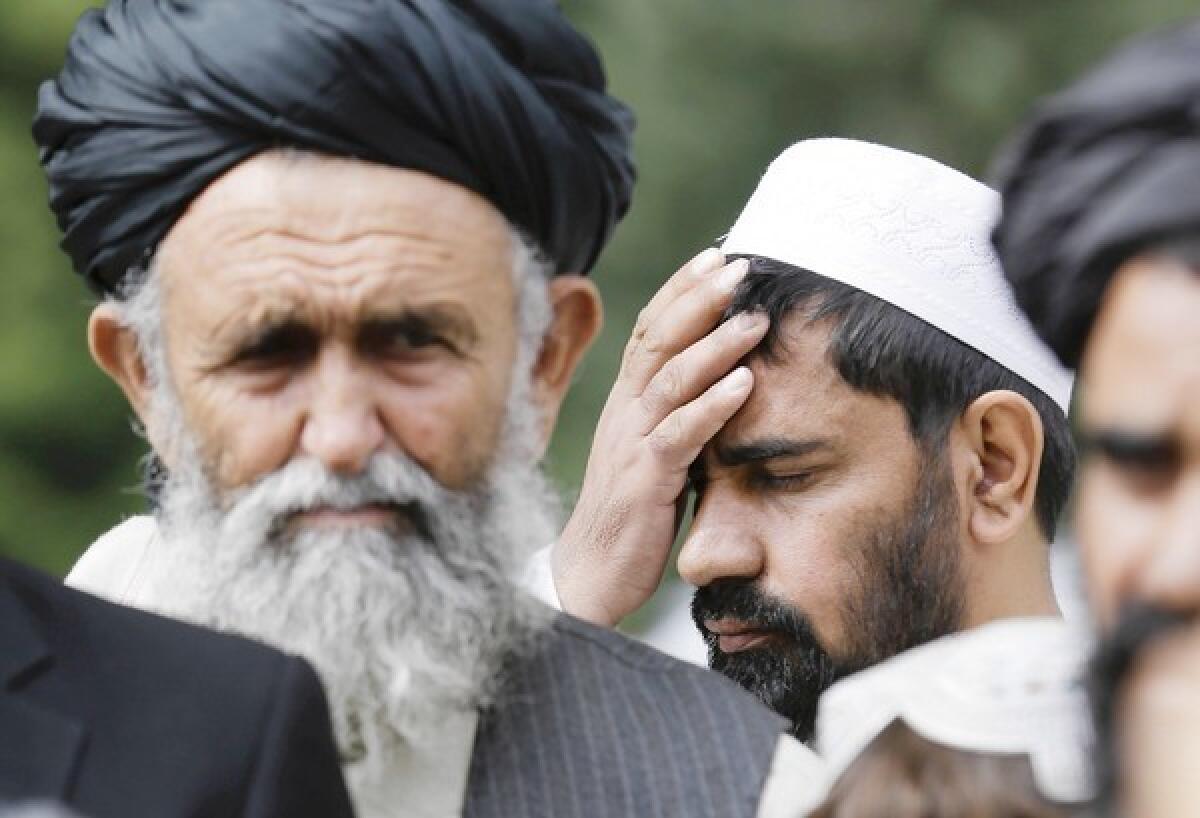U.S. soldier sentenced to life without parole for Afghan massacre

JOINT BASE LEWIS-McCHORD, Wash. — A military jury Friday sentenced Army Staff Sgt. Robert Bales, who pleaded guilty to killing 16 Afghan civilians, to life in prison without the possibility of parole.
Bales, 40, entered the guilty plea in June in a deal to avoid the death penalty.
During his court-martial sentencing hearing here Thursday, Bales had apologized for his actions. He described the killings as an “act of cowardice, behind a mask of fear.”
The six-member military jury deliberated less than two hours Friday morning after closing arguments. As a result of Bales’ guilty plea, jurors were only deciding whether he would be eligible for parole.
Bales showed no emotion as the sentence was read, while his mother bowed her head, rocked in her seat and wept. An interpreter flashed a thumbs-up sign to a row of Afghan villagers who were either wounded or lost family members in the March 11, 2012, attacks, the Associated Press reported.
But the Afghans, who had traveled nearly 7,000 miles to testify against Bales, later spoke with reporters through an interpreter and expressed deep disappointment with the sentence.
“We wanted this murderer to be executed, but we didn’t get our wish,” said Haji Mohammed Wazir, who lost 11 family members, including his wife, mother and six of his seven children.
Kari Bales, the soldier’s wife, declined to comment through her spokesman.
During the proceeding, his defense sought to humanize him as a dependable and upstanding man — a good father, a good soldier, a good friend — who had been tormented by war.
In closing arguments Friday, prosecutors described Bales as a man desperate for power who executed a premeditated, merciless attack on the Afghan villages. They disagreed with the notion posited by Bales’ lawyers that he acted in a burst of rage.
Bales’ actions were calculated, prosecutors said, brought about by problems with alcohol, steroid use, his marriage and his finances. “He should be known by one official title from this day forward until the day he dies: inmate,” said prosecutor Lt. Col. Joseph Morse.
Bales’ attorneys did not dispute the fact that he was responsible and that he should face the consequences for the crime.
One of them, Emma Scanlan, asked jurors to consider allowing a “sliver of light” and offer him the possibility of parole. “That’s all,” she said. “That, by no means, is a guarantee. It’s far from that.
“I’m not asking you to set him free. I’m asking you to confine him for life but to reserve that one piece of it for a later day,” she said.
John Henry Browne, also an attorney for Bales, said that the decision was disappointing but did not come as a surprise.
“I thought we won when we got the death penalty taken off the table,” he said. “It was a major uphill battle given the facts of the case. I don’t regret any of the decisions we made, and I don’t think Sgt. Bales does either.”
Browne said that Bales “was resigned” to the sentence and “felt this was coming all along.” He added that Bales was “pleased” that he not would face the death penalty, for the sake of his wife and children.
More to Read
Sign up for Essential California
The most important California stories and recommendations in your inbox every morning.
You may occasionally receive promotional content from the Los Angeles Times.










